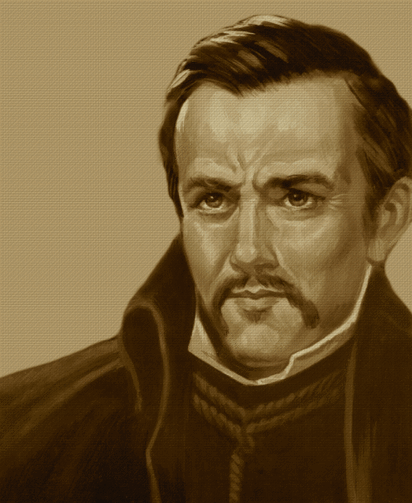I hope that readers of the “Disptches” blog will indulge your correspondent and permit me to post a more personal note about the Jesuit martyr, St. John Ogilvie, put to death in Glasgow, Scotland, on March 10 400 years ago. These brief thoughts come from a homily I shared yesterday, on Ogilvie’s feast-day, in my Jesuit community here in London.
I was intrigued, as a young discerner wondering about my vocation, when I returned to the story of John Ogilvie. We had been taught about him at our Jesuit secondary school in Glasgow and he was known throughout the Scottish Catholic Church—our only recognized martyr. Not only was he a Blessed in those days but he was a hero, presented to us boys as such, and it was all too easy to see him as a hero of one side in those Scottish sectarian habits that still die hard today.
Only later, with, please God, having achieved a certain degree of maturity and at least a modicum of judgement, have I come to see him as a hero for very different reasons; a champion, not of one denomination over another, but for religious tolerance and freedom; indeed as a figure who stood up against intolerance rather than taking one side in those conflicts. Slowly, I began to see him as a man of a discernment which was allied to great desires.
John famously said, once his cover was blown and he was betrayed and arrested, that wanted to be known as an “ordinary Jesuit.” There is a record that that’s how he announced himself to his captors and his torturers. An “ordinary Jesuit”; for some that might be an oxymoron, for sadly we are sometimes noted more for arrogance than humility, whether or not that’s a fair critique. There is a phrase in the Memoriale of Luis Goncalves da Camara, S.J., to whom Ignatius dictated what became known as the Autobiography and one of the best interpreters of Ignatius and I think it’s a phrase that John would most likely have known, and certainly would have approved. ‘Our Father [sc., Ignatius] wanted us, in all our activities, as far as possible, to be free, at ease in ourselves, and obedient to the light given particularly to each one.’ Almost certainly that sentence inspired his discernment. It’s a description of an ordinary Jesuit, and that is what John wanted to be. As Pope Francis noted in his America interview, A Big Heart Open to God (9/30/14), “The style of the Society is not shaped by discussion, but by discernment…”
We know of Saint John Ogilvie that he was strong-minded, resolute. While serving in mainland Europe he asked, even pestered his superiors to be sent back to his native land as a missionary. St. Ignatius highly valued spiritual liberty and it is the business of Jesuit Superiors to govern in a way that fosters that freedom while maintaining the coherence of the whole body. John got his wish. It was discerned that he should return. Disguised as a horse-trader, he landed at Leith, near Edinburgh, in 1614. It was not long until he was arrested and tortured, tried and executed. His ministry was brief. He remained spiritually free and, clearly, at ease with himself. He was always positive. His great desires, fostered by the spirituality of the Spiritual Exercises, were the light given particularly to him and to those he remained faithful to the end.
Seconds before the hangman did his work, John threw his rosary into the crowd where it struck a young Hungarian visitor to the city; it became, in time, the instrument of that man’s conversion. Let’s pray today to this wonderful saint that, through his intercession, we can be similarly free, at ease and faithful, developing great desires for the conversion of many hearts and for the more universal good.








